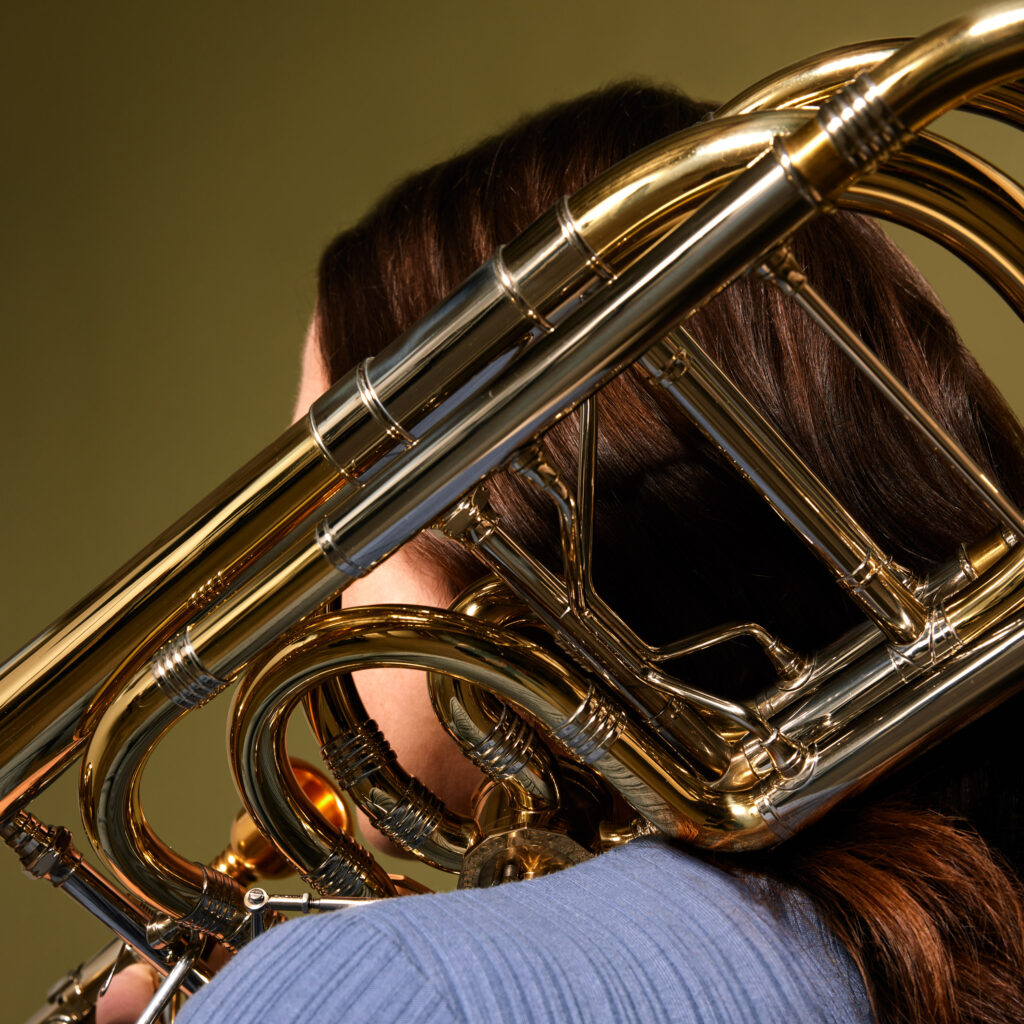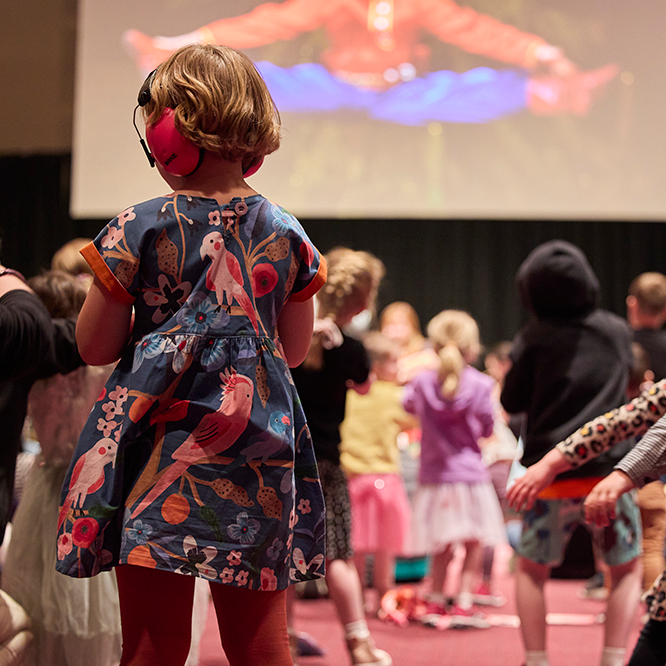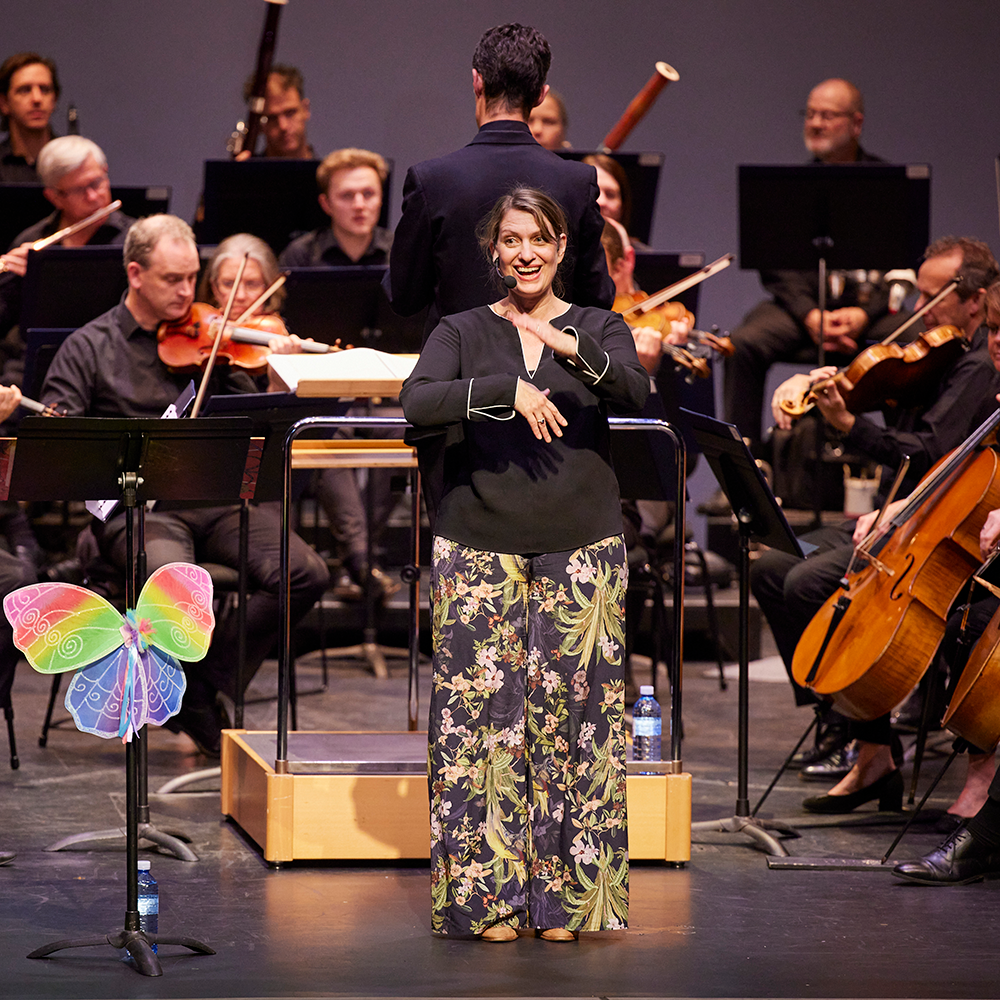Life as a student conductor, with Andrew Groch
- Meet the Artists

Andrew is currently completing a Masters of Conducting with Luke Dollman at the Elder Conservatorium at the University of Adelaide. And he’s also our Artistic Coordinator. We chat to him about what it’s like to undertake two demanding roles at once.
When did you first realise you wanted to go into orchestral conducting?
I somewhat fell into conducting. I started out working with concert bands in my secondary school’s music program, did a few masterclasses, and loved every second of it. There’s something very special about being on the podium to bring together a room of musicians for something bigger than any individual. I think once I got a taste of that – being the one that facilitates that coming together – was when I decided it was something I wanted to do.
You’re also ASO’s Artistic Coordinator. What does that involve, and how do you balance your studies with your role at ASO?
Being the Artistic Coordinator at the Adelaide Symphony is a really multifaceted role that quite often involves being a fulcrum between departments; in a single day I can discuss selling points for performances with Marketing, stage plans with Operations, and getting artists to engage with donors with Development. On top of that, I speak with a lot of artists and managers about everything from performance fees to airport pickups.
Balancing my Masters can be tricky in intensive weeks, but on the whole I think I’m lucky that my job is essentially part of my study as well. Not only am I developing a working knowledge of the industry, but I also get to engage with artists, be exposed to a colossal amount of music, and engage in critical discussion about music on an almost daily basis. It can a bit exhausting being surrounded by music on every side, but I consider myself lucky.
What is it like to work alongside leading conductors like ASO Principal Conductor Nicholas Carter, Principal Guest Conductor Mark Wigglesworth and Artist in Association Pinchas Zukerman, and also Guest Conductors including Benjamin Northey and Nicholas Buc?
Getting to work alongside leading conductors like those mentioned is a real privilege, in fact it’s why I moved to Adelaide to study at the Elder Con. Music making is so much about human connection, and learning is exactly the same. Podium time in front of an orchestra is a really rare and valuable thing, so there’s an absolute wealth to learn from people who are doing it nearly every single day!
What are the biggest differences between conducting a student and a professional orchestra?
Conducting students versus professionals is honestly worlds apart. With students it can feel a little didactic, often because they’re playing the work for the first time as well; things aren’t always together or in tune or balanced and you have to do a lot more ’taking care of business’. In comparison, conducting professionals feels like being handed the keys to a Lamborghini: suddenly there’s a responsiveness and range of performance that you didn’t have before. It’s really exciting, but as a young conductor also challenging because you also have to step up your level of communication. If you don’t have anything to say about a piece of music, a professional orchestra can see right through you.
What has been the biggest challenge of being a young musical producer and conductor?
The biggest challenge to each one in the long term is the other. At the moment I’m sitting at a nice equilibrium between conducting and producing, but to get to this point and down the track there’s a lot of tough decisions to be made. For example, my recent move to Adelaide was entirely for the benefit of my conducting and, at the time, came at a cost to my producing; I was very fortunate to land a role at the ASO after the fact. Knowing when is the right time to prioritise one or the other and make the best decision for both is much easier in hindsight!
Do you have any words of advice for aspiring young conductors?
For aspiring conductors there’s two main pieces of advice:
Cultivate your musical capital as much as you can. All an orchestra wants is a conductor who clearly communicates a convincing musical vision. Study your scores, work on your technique, develop your aural skills, build your knowledge of composers and conductors, so that when you stand in front of 75+ musicians you have something worthwhile to say.
Find any opportunity to conduct. No matter if it’s the Adelaide Symphony or your friends sight-reading, podium time is gold and you learn so much from it.




